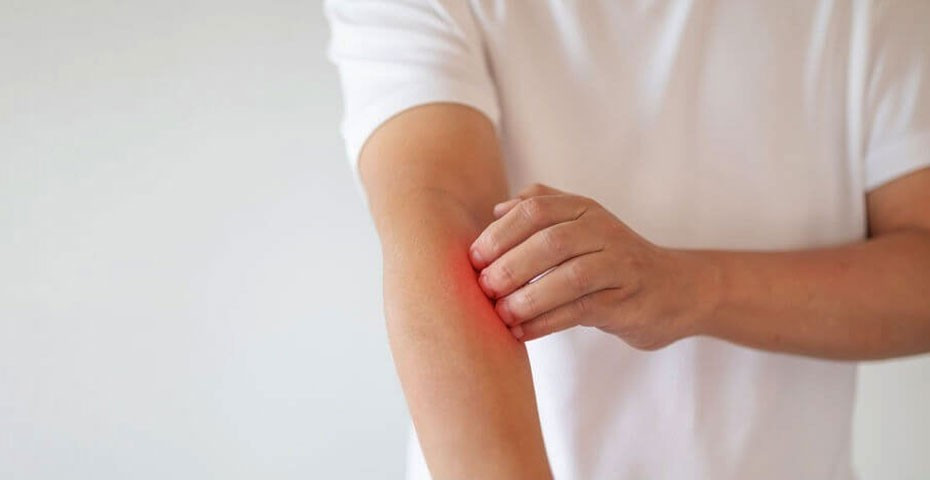Atopic dermatitis in adults

Atopic dermatitis is a disorder that mainly affects children, but in some cases it can also continue into adulthood, with different manifestations than in childhood.
Here's how to recognize atopic dermatitis in adults and how to fight it
How it manifests itself
Atopic dermatitis in adults can manifest itself with different symptoms than childhood eczema, sometimes even more painful, with lesions that are mainly located in the folds of the elbows and knees, on the nape, neck, face and eyelids.
The symptoms are, generally:
- Xerosis (dry skin) and skin irritations, accompanied by itching;
- Dermatitis on hands and eyelids;
- Presence of chronic thick and reddened plaques;
- Possible metabolic alterations and infections.
What are the causes of atopic dermatitis in adulthood?
About 10% of people who suffered from atopic dermatitis as children also suffer from it in adulthood.
One of the factors is hereditary in nature: if you have a family history of atopic dermatitis, you are likely to develop the disease.
If the disease occurs suddenly, it is necessary to understand whether it is actually atopic dermatitis or another dermatosis (sweat dermatitis, contact eczema, allergic dermatitis).
Treatment and care
First of all, it is necessary to contact a specialist to be able to evaluate the right way to intervene.
The topical use of creams and ointments can be useful in reducing the discomfort caused by the lesions.
Phototherapy sessions may be indicated, which consists of targeted exposure to UV rays.
But there are some important steps to take to treat the symptoms:
- Avoid excessive washing: washing atopic skin too often can cause excessive dehydration, which would worsen the symptoms. The skin must always be cleansed with delicate, non-foaming products, so as not to alter the skin's hydrolipidic film;
- Use lukewarm water;
- Avoid synthetic clothing: it is advisable to wear cotton and linen clothes, to allow proper perspiration of the skin;
- Be careful with food: it is important to adopt a diet that excludes foods that contain possible allergens;
- Moderate exposure to the sun's rays: in general, the action of the sun is beneficial for the treatment of symptoms, but it is necessary to avoid exposing yourself in the hours that are too hot.
